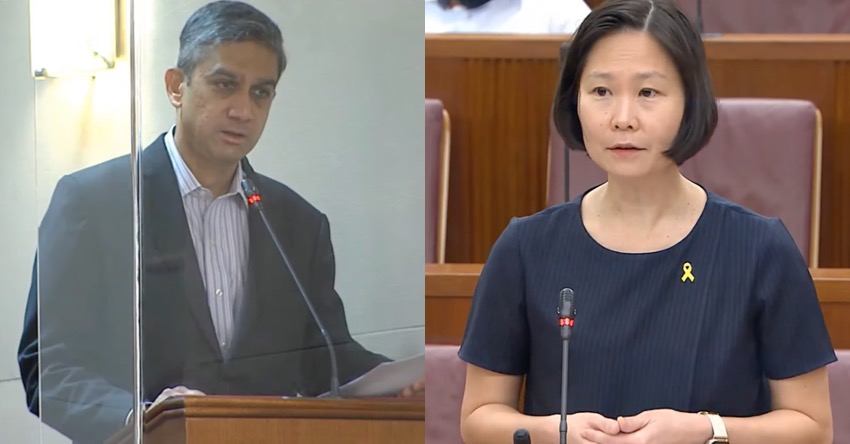Follow us on Telegram for the latest updates: https://t.me/mothershipsg
The Tripartite Alliance for Fair and Progressive Employment Practices (TAFEP) has handled an average of 400 discrimination cases per year over the past three years, said Minister of State for Manpower Gan Siow Huang in Parliament on Thursday (Mar. 4).
Gan was responding to a question by Workers' Party Member of Parliament (MP) Leon Perera about the percentage breakdown of cases of discrimination and the penalties imposed for breaches of TAFEP.
60 per cent of cases of discrimination were nationality-based
Of the 400 cases, Gan said employers were found to have breached the Tripartite Guidelines on Fair Employment Practices (TGFEP) in about 50 of them, and thus had their work pass privileges suspended.
About 60 per cent of cases involved nationality-based discrimination. Around one-third of the cases involved gender and aged-based discrimination, in roughly equal proportions.
The remaining cases had to do with other forms of discrimination, such as pertaining to race, marital status, and family responsibilities.
Perera asked in a clarification whether the government would consider publishing these statistics annually.
In response, Gan said that the ministry will consider doing so, "if we think that it helps in shaping the public opinion of the situation on the ground, as well as in shaping employers' behaviour to correct their behaviour towards fair employment practices."
Increased perception of discrimination in the job search process
Responding to another follow-up by Perera about whether the government could regularly conduct surveys on Singaporeans' perceptions of discrimination in the hiring process, Gan said that MOM tracks public perception of fair employment practices through regular opinion polls.
In addition, she said, the ministry also conducts more detailed surveys of fair employment practices over time.
Gan said that while employers have made progress over the years, MOM has observed an increase in the percentage of local jobseekers who perceived discrimination during the job search process between 2014 and 2018.
"MOM will continue to conduct regular surveys, so that we have a good pulse of public opinion on this matter," she added.
Issued an average of 40 warnings per year
Aside from suspending employers' work pass privileges, Gan said that the Ministry of Manpower (MOM) also issues warnings to employers with less severe breaches.
These less severe breaches include lapses in HR practices that resulted in miscommunication and discrimination in the recruitment process.
In such cases, stated Gan, TAFEP will step in and advise employers on the required rectifications. An average of 40 warnings were issued by MOM annually.
Gan said: "MOM takes a serious view of discrimination at the workplace. Over the past three years, there has not been a repeat offender."
Follow-up questions about penalties
Perera and MP Louis Ng both asked follow-up questions about the penalties imposed on employers who are found to have breached the TGFEP.
Perera: What about companies that aren't affected by work pass privileges being revoked?
Perera asked Gan to share examples of cases of companies who had engaged in discriminatory practices who were not "amenable" to change as a result of having their work pass privileges suspended, because they did not employ any foreigners and thus the punishment did not affect them.
For cases of discriminatory dismissals, Gan said, the employer can be ordered by the Employment Claims Tribunal to compensate the employees.
In addition, for companies that are employment agencies, demerit points are imposed. After sufficient demerit points are accumulated, the agency's license could be suspended or revoked.
Gan added that the ministry has also taken legal action against companies who falsely declared fair hiring practices in the past.
Ng: Can the penalty framework be reviewed to be more aligned with the discrimination type?
Ng asked whether the ministry would consider reviewing the penalty framework under the TGFEP to be more aligned with the type of discrimination that had occurred:
"It sort of makes sense if [a company] discriminates based on nationality, we curtail [the company's] work pass privileges.
But if you discriminate based on gender, on family responsibility, and the penalty is to curtail the work pass privileges, then it sort of doesn't make sense."
Gan responded that the government had just reviewed the penalty framework in 2020, and will consider to review it further if necessary.
Totally unrelated but follow and listen to our podcast here
Top photo via MCI's YouTube channel.
If you like what you read, follow us on Facebook, Instagram, Twitter and Telegram to get the latest updates.
